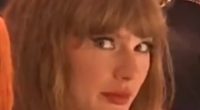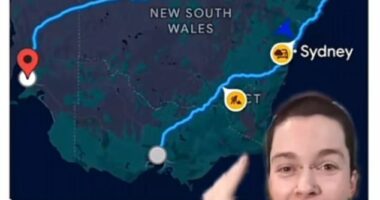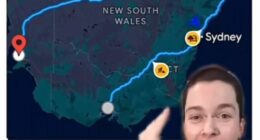Leah and Gerard have been forced to put up a warning sign and safety barrier in their driveway as a result of the scam.
“No idea why it’s happened to us,” Gerard said.

It started with a woman knocking on their front door to enquire about a bicycle.
“We had more than 100 people show up to our home looking for items that we supposedly had for sale, that we did not,” Leah said.
“All sorts of things, mainly large items like TVs, couches, mattresses, outdoor furniture,” Gerard said.
The buyers all had one thing in common – they’d answered ads from a bogus seller.
Screenshots from one message exchange show how they were given a fake pick-up address – which just happened to be Leah and Gerard’s.
“They would arrive anywhere from 7.30 in the morning, right through until 10-10.30 at night,” Leah said.
“Some people had paid deposits, some people had organised air taskers to come and collect on their behalf. So not good,” Gerard said.

Across Australia, Cyber support group ID Care is seeing an increase in Facebook Marketplace scams.
Fake sellers choose random addresses to convince buyers they’re locals to gain their trust.
“We find with many of the victims that are giving money, they’re also giving away scanned copies of their driver’s licence for example,” ID Care chief executive Dave Lacey said.
“And identity theft also is a big risk.”
While Gerard and Leah dealt with the duped buyers as sympathetically as they could, they had to stop the knocking.
Their sign outlined the nature of the scam and a temporary barrier gave more peace of mind.
Eventually, their local member was able to approach Facebook owner Meta to take down the suspect seller.
For Facebook marketplace users, it pays to check that sellers are real people.
Red flags include new profiles with no followers, when the photo of the sales item is clearly from a catalogue or if the price sounds too good to be true.
“We’re just thankful that it’s stopped,” Gerard said.





